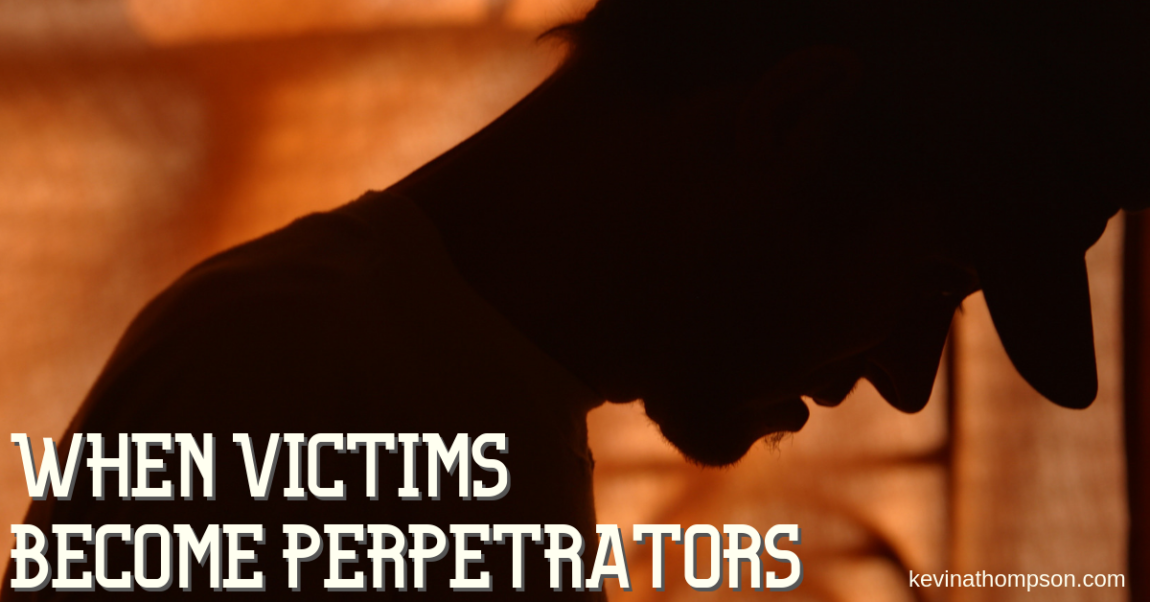It is so unbelievably unfair. I almost feel guilty even saying it. Yet it is overwhelmingly true. When you are a victim, it is your responsibility to walk the pathway of healing. Refusing to do so will have dire consequences to you and those around you.
This isn’t fair. Victims are innocent people. They face the negative consequences of another person’s poor choices. The suffer–oftentimes quietly–while their perpetrators often never experience the negative consequences of their own actions. The victimization comes with a plethora of consequences none of which have been sought and none of which are desired.
If anyone should take responsibility, it’s the perpetrator. They should own what they did. Repent. Seek to make amends. Learn why the actions took place and learn new behaviors so as not to repeat their decisions. (See: Sometimes You Are Your Past)
While that is what should happen, what does happen is the responsibility falls equally to the victim as it does the perpetrator. Notice–I’m in no way excusing what a perpetrator should do. They still have total responsibility for themselves and their decisions. However, in addition to their responsibilities, victims also have a responsibility.
The Unfair Responsibility
Victims should never own the decisions or actions of others. They should not feel as though they deserved what happened to them or that they asked for it or caused it. Yet they must own that the action did take place and that they–the victim–is responsible for finding (and walking) a path toward healing.
It’s not fair, yet it is the truth.
Sadly, what so often happens is that victims do not understand (or are not willing to take) their responsibility. It’s understandable that victims believe they shouldn’t have to do anything since they didn’t ask to be put in the situation in which they were put. However, if they don’t take responsibility for their healing, no one will.
But it’s even worse. If they do not heal from what happened to them, they will begin to victimize those around them. They won’t mean to do so. They aren’t ill-intended. But it’s guaranteed to happen.
If you do not own “that” things have happened to you, you will not make the choices necessary to heal from them. You never have to own “what” happened, that belongs to the ones who made the poor choices. Yet you must own “that” it happened and you must take full responsibility of doing the work necessary to heal from those experiences.
When It Controls You
As a pastor, I regularly watch as victims become perpetrators. They inflict pain and suffering on others because they have failed to take responsibility that pain and suffering were inflicted on them. It’s not an intentional choice. Either they don’t realize what they need to do or they are understandably afraid of doing the work necessary to heal. But either way, they fail to walk the road they need to walk so that their past experience continues to have a controlling presence in their lives.
I assure you, pain that is not processed will control you. It will attack your identity, create insecurity, birth bad habits, tempt you toward unhealthy patterns of coping, cause you to enmesh yourselves with others, disturb your parenting, thwart intimacy in marriage, stifle friendships, etc.
As your pain controls you, it will have a negative impact on others. Unprocessed trauma will traumatize others. (See: One Thing God Will Never Say)
When You Control It
Thankfully, I often witness another way. I see people who have suffered tremendous injustice. They have been abused, used, manipulated, and mistreated by those they didn’t know and/or by those they loved the most. It’s unfair and unjust.
Yet they accept their responsibility. They don’t own (nor should they) what happened to them, but they fully accept that something happened and they do something about it. They go to counseling read books, attend a support group, are honest with themselves and others all in a lengthy process to walk the road of recovery. No one can “get over” what happened to them. That’s never the goal. But victims can move forward toward the healthiest version of who they can be. In so doing, their past doesn’t control them.
And oftentimes something amazing happens. Rather than their victimization causing pain in others, their experience brings healing to others. Because they walk the road of recovery, they can assist others to do the same. The old phrase, “hurt people hurt people” is true. But it’s equally true that “healthy people help people heal.” None of us can fully process what we have experienced without walking alongside someone who has experienced similar pain and sorrow. Their journey of healing assists us in our process of healing. (Consider 2 Corinthians 1.4)
The Heartache and the Hope
There are few things more sorrow-filled as a pastor than watching victims become perpetrators. They experience unfair sorrow only to later enact unfair sorrow on their spouse, children, family, co-workers, and friends. It’s tragic. (See: Emotional Baggage–What Is Dragging You Down)
Thankfully there is another way. When we have the courage to deal with our pain, we have the opportunity to assist others with theirs. Our heartache can become the source of our hope.




5 Responses to When Victims Become Perpetrators